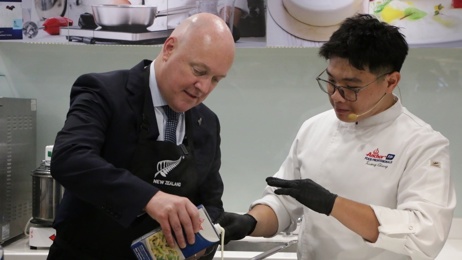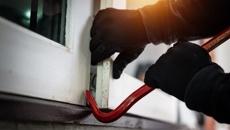LISTEN TO CHRIS KEALL TALK WITH ANDREW DICKENS ABOVE
It took some of the gloss off Rocket Lab's first commercial flight when I saw a CNN report describing the company as "a scrappy American startup".
The New York Times and Forbes have also claimed Rocket Lab as an American company, while the BBC called it a "US startup".
Our Kiwi ingenuity success story has been claimed by the Yanks. And the annoying bit is they do have a point.
There is constant background noise about Rocket Lab's ownership.
When I suggested on social media that it would be better for New Zealand's image if Prince Harry and Meghan Markle toured Rocket Lab's new Auckland plant rather than go gumboot throwing, Auckland man Vaughn Davis shot back, "Dude, they're British royal family so why would they tour a US company?"
And departing Vector chairman Michael Stiassny fumed yesterday that while his company has copped flak for partnering on smart grid technology with mPrest (which provides technology for Israel's Iron Dome anti-rocket system), Rocket Lab - as he saw it - escaped scrutiny.
"The statement has been made that mPrest have been involved in making military equipment - bombs etc. Under no circumstance while I've been at Vector would we have tolerated that, and they don't do that," Stiassny told shareholders.
"What they do is create a defence system that does not kill anyone - completely different."
He added, "It's a bit sad it's been discussed in the press so negatively when, for instance, Rocket Lab - which we all think is the most wonderful thing - and it is - is actually significantly owned by Lockheed Martin, which does produce weapons that kill people. But no one really cares about that."
When I asked Peter Beck whether his company was Kiwi or American, he didn't shirk from waving the Stars and Stripes.
"Look, we've been an American company and proud of it for many years," he said.
"The New Zealand element is very important and very special to us but we never tried to hide the fact we're a US company and this is where New Zealand companies go wrong in the fact that if you want to be a large, successful global company, it's very difficult to be that out of New Zealand."
He added, "Instead of lamenting the fact we've lost a company from New Zealand, we should be celebrating the fact that a company has got so large that it needs to go global."
This morning, Beck had nothing to add to that, but one of his reps noted, "We're still working our way through the 700+ global news stories, so I'm sure we'll come across a lot of different descriptions."
Beck had no comment on Stiassny's Lockheed Martin weapons jibe.
Rocket Lab has raised US$148 million from investors and has a private equity valuation north of US$1 billion - eye-watering by Kiwi standards but tiny next to Elon Musk's Space X (US$20b) and a rounding error for Amazon founder Jeff Bezos, who is putting a portion of his US$141b fortune in space venture Blue Origin.
Last month, I asked Beck about the size of Lockheed Martin's stake, and the size of the holdings of the trio of Silicon Valley heavyweights on its share register (Khosla Ventures, The Data Collective and Bessemer Venture Partners).
He did not want to detail who owned what per cent, but conceded he now held a minority stake. He said his and Sir Stephen Tindall's holdings were still "substantial", however.
Rocket Lab is now incorporated in the US, and its rockets are made at its Huntington Beach, California, factory, which is much larger than its recently opened assembly plant in Auckland.
And yet, most of Rocket Lab's 200+ staff are in New Zealand, and half of its 180 hires in the year ahead will be in NZ - all high-value jobs.
The company did just name its first launch site in the US (Nasa's Wallops Launch Facility in the US state of Virginia) and Beck says it's actively scouting for a site in the UK, with one in Asia to possible follow.
But he adds that as Rocket Lab chases a $3b+ pipeline of satellite launches over the next four years and ramps up to weekly flights, Mahia Peninsula will remain its highest frequency launch site. Our relatively liberal regulatory environment helps, Beck says, but it's mainly because or airways and shipping lanes are, by international standards, nearly empty.
R&D is based in New Zealand, and Beck plans to keep it here (which is good, given taxpayers have chipped in via Crown agency Callaghan Innovation, which has provided matching R&D funding worth up to $25m).
And all flights, wherever in the world, will be wrangled from the company's new mission control centre in Auckland.
So in so many ways, Rocket Lab is a Kiwi company, or at least a Kiwi-American company.
But try telling that to CNN.
Take your Radio, Podcasts and Music with you









